- Home
- Our Community
-
Offices & Ministries
- Administrative Offices (A-N)
-
Administrative Offices (O-Z)
- Planning, Properties & Housing
- Public Relations & Communications
- Research
-
Spiritual Affairs
- Home
- Churches and Ecclesial Communities with valid Baptism
- Registration Forms for Baptism, First Holy Communion, Confirmation, and RCIA
- Marriage Preparation
- Celebration of Holy Mass Outside of a Sacred Space Protocol
- Exorcism Protocol
- Healing Service Protocol
- Visiting Clergy-Laity Protocol
- Selected Pastoral Notes on Sacraments and Sacramentals
- Faculties for Clergy
- Temporal Affairs
- Western Bishops Office
- Volunteer Screening
- Pastoral Ministries
- Outreach in Justice & Love
- Our Faith
- Outreach
- Contact Us
- Search

Religious Relations with Judaism
Dialogue and Common Witness
The Archdiocese of Toronto is committed to encouraging the development of the specially priviledged religious relationship that Christians have with Jewish people.
Nostra aetate is often referred to as the "Magna Carta" of Catholic-Jewish relations and it has been noted that the two communities are inseparably linked in the essential foundation of faith in the God of israel, united by a rich common spiritual heritage and the legacy of a longstanding shared past. Christianity has its roots in Judaism: the latter constitutes the nucleus of its identity.
The Church cannot forget its spiritual bond with Judaism for "she draws sustenance from the root of that well-cultivated olive tree onto which have been grafted the wild shoots, the Gentiles."1
Catholicism recognizes that "God holds the Jews most dear for the sake of their Fathers; He does not repent the gifts He makes or the calls He issues."2
The Vatican Commission for Religious Relations with Judaism has stated "that the Jews are participants in God's salvation is theologically unquestionable, but how that can be possible without confessing Christ explicitly, is and remains an unfathomable divine mystery."3
Friendship reflects the tangible progress in the depth of relations between Catholic and Jewish leaders and those mirrored by their constituents assuring open and candid communication that are essential in addressing challenging issues. The heritage that grounds the vision makes the religious dialogue between Christians and Jews unique and calls for respect and gratitude with hope of a new chapter and shared history.
On the day after the Mass for the Inauguration of his Petrine Ministry, Pope Leo XIV reaffirmed the Catholic Church's commitment to religious relations with Judaism:
"Because of the Jewish roots of Christianity, all Christians have a special relationship with Judaism. The conciliar Declaration Nostra aetate (no. 4) emphasizes the greatness of the spiritual heritage shared by Christians and Jews, encouraging mutual knowledge and esteem. The theological dialogue between Christians and Jews remains ever important and close to my heart. Even in these difficult times, marked by conflicts and misunderstandings, it is necessary to continue the momentum of this precious dialogue of ours.”4
Activities
The Office fulfills its mandate of the promotion of good relations, mutual understanding and respect with the Jewish faith community by encouraging opportunities and providing resources for the formation and education of Catholics in the Archdiocese of Toronto as well as events that foster encounters and cooperation with Judaism.
Nostra aetate's paragraph 4 provides concrete direction for these activities:
"Since the spiritual patrimony common to Christians and Jews is thus so great, this sacred synod wants to foster and recommend that mutual understanding and respect which is the fruit, above all, of biblical and theological studies as well as of fraternal dialogues."
"In her rejection of every persecution against any person, the Church, mindful of the patrimony she shares with the Jews and moved not by political reasons but by the Gospel's spiritual love, decries hatred, persecutions, displays of anti-Semitism, directed against Jews at any time and by anyone."
The Archdiocese of Toronto encourages opportunities to contextualize the Declaration of Jewish-Catholic Dialogue for Canada (2015), especially coordinating and encouraging local initiatives that raise greater awareness of the improved and fruitful relationship between the Catholic Church and the Jewish people.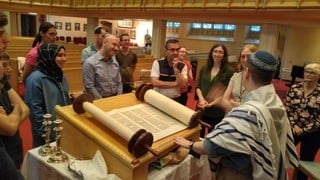
Education and Formation
Sessions for the education of Catholics are offered from time-to-time in the Archdiocese of Toronto.
Extensive resources are available for formation in Jewish-Catholic relations.
These range from repositories and collections of documents, statements, articles, themes in current dialogue, educational and liturgical aids, and texts on the history of Jewish-Christian relations to programmes.
Walking God’s Path, a six-part multimedia curriculum, is an introductory resource appropriate for use in parishes and schools:
The Psalms: A Doorway to Jewish-Catholic Dialogue (2020) issued by the Canadian Conference of Catholic Bishops and the Canadian Rabbinic Caucus bilateral dialogue presents teaching and reflections flowing from deep study of a selection of psalms from the perspective of both traditions. This document likewise serves as an invitation for further encounter among the faithful of the Catholic and Jewish communities.
Reading Psalms as the Water Rises and Leaders Guide (2022)
Lived Diversity: Observing Passover and Easter (2022)
Through conversations and storytelling, paired with instruction about each observance, this 13-minute video is a lively presentation of the diverse expressions of our religious traditions. A facilitation guide with questions for discussion and resources for further reading is available.
About the Jews (2022)
This ground-breaking animated short video series was originally created by the American Jewish Committee with the aim of fostering understanding of Judaism in the Arab world. Video titles include: What is Antisemitism? Who are the Jews of America? Is Israel only for Jews? Protocols of the Elders of Zion, Jerusalem, The Holocaust, Jewish-Muslim Relations, and Who are the Jews?
The Time for Recommitment: Building the New Relationship between Jews and Christians (2024)
This document is an Educational Resource and offers a fresh invitation to deepen the understanding and cooperation between Christian and Jewish communities. Twelve Points represent 12 sessions: four addressed to the Jews, four addressed to Christians, and four addressed to both communities together with the challenge of mutual concerns and possibilities for collaboration. A tool to enable grassroot engagement in healthy dialogue, reflection, and collaboration for peace in society. Prepared and published by International Council of Christians and Jews.
Lighting the Way (2025)
The co-chairs of the CCCB-sponsored Jewish-Catholic Dialogue, the Most Rev. Christian Lépine, Archbishop of Montreal, and Baruch Frydman-Kohl, C.M., Rabbi Emeritus of Beth Tzedec Congregation of Toronto, co-wrote an editorial in advance of Christmas and Hanukkah in 2025. The editorial marks Christmas and Hanukkah, in the context of celebrating a decade of Jewish-Catholic national relations in Canada, and to share this “good news” in the midst of the current turmoil around the world.
Scriptural Reasoning is a helpful tool for Jewish-Catholic dialogue. It is premised on people of different faiths coming together to read and reflect on their scriptures. Unlike some forms of engagement, it is not about seeking agreement but rather exploring the texts and their possible interpretations across faith boundaries, and learning to ‘disagree better’. The result is often a deeper understanding of others' and one’s own scriptures, as well as the development of strong bonds across faith communities. Scriptural Reasoning is now practised globally, including in places affected by religion-related tensions and conflict.” A vast library of resources is available for Spiritual Reasoning, from ‘Text Packets’ on various topics to guidelines and tips for the facilitation of groups.
Guided visits to synagogues are especially helpful in establishing contact and building bridges for relationship with the Jewish community.5 Festivals, Shabbat Services, “Teaching” Seders, and commemorations of important events in the history and life the Jewish faith community provide not only educational opportunities for Catholics but also foster solidarity for common action and friendship.
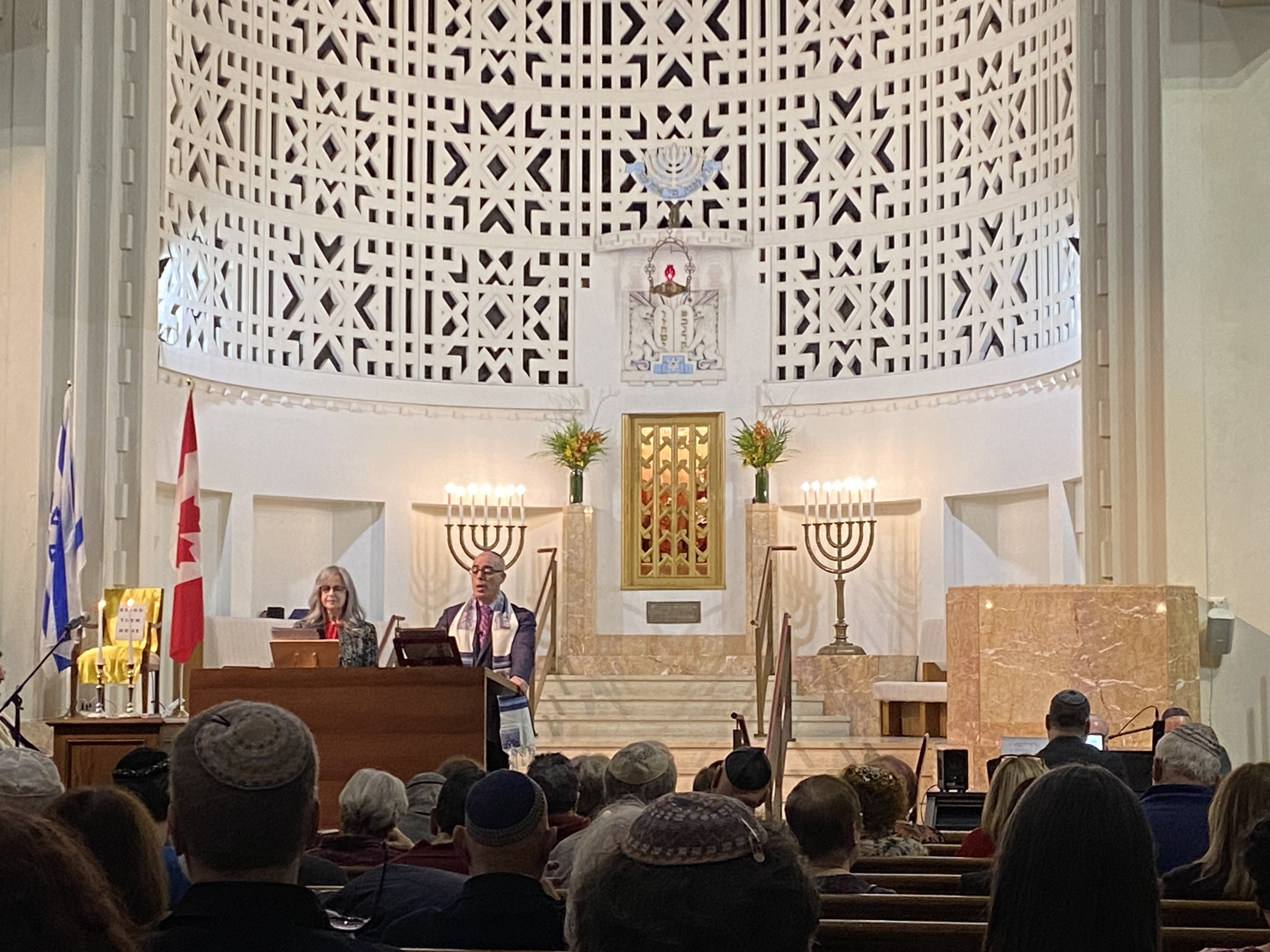
The ISPS-Ratisbonne, Bat Kol-Christian Centre for Jewish Studies offers graduate level courses in Jerusalem for Christian educators extends courses to local area institutions. Their website provides homilists with helpful commentaries to contextualize the Sunday readings in their Jewish setting.
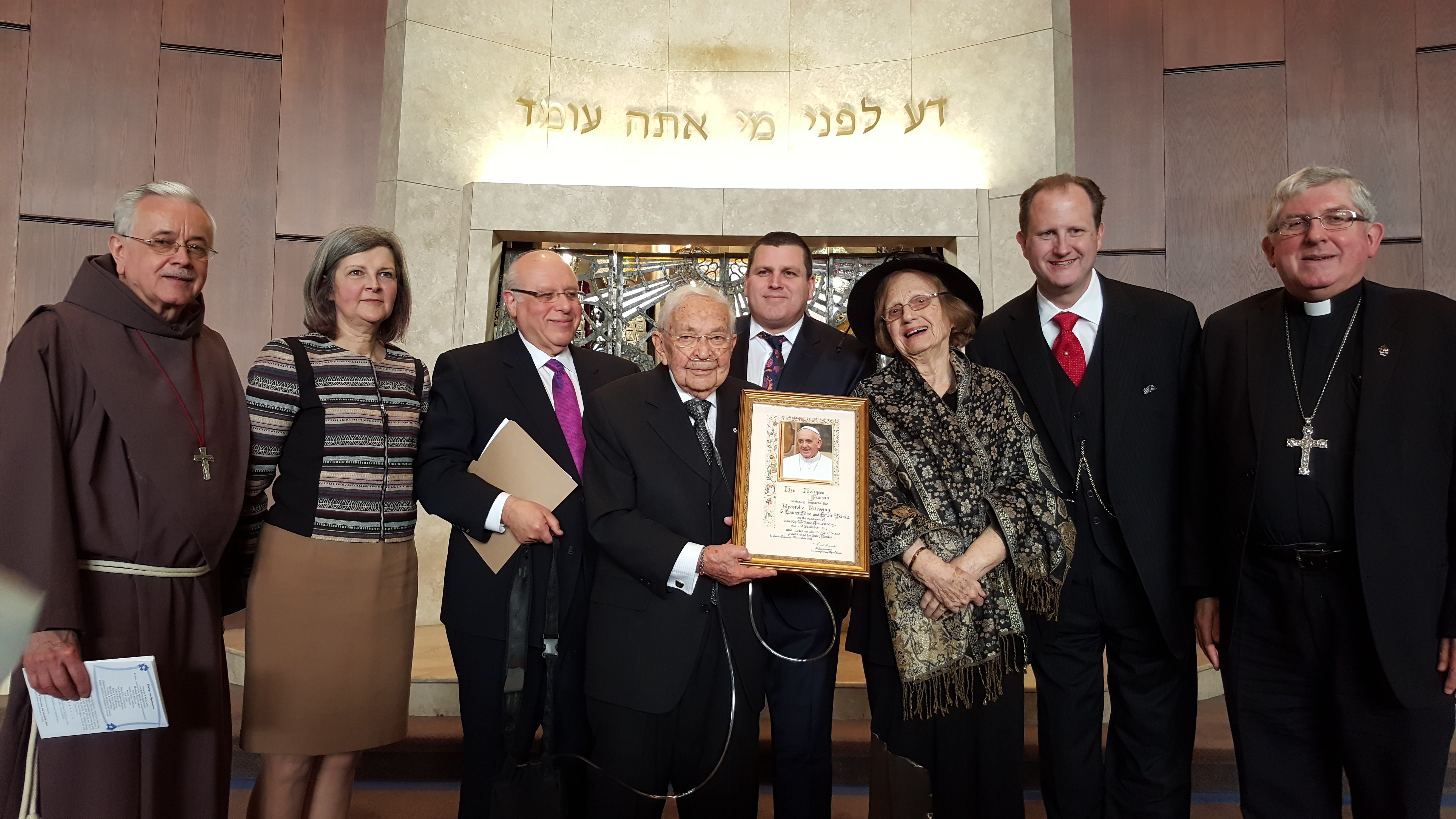
Dialogue and Common Witness
Dialogue and common witness with the Jewish community is often done ecumenically.6
“In working out religious relationships with Jews and in their relations with members of other religions, in accordance with appropriate directives, Catholics can find many opportunities for collaboration with members of other Churches and ecclesial Communities. There are many areas where Christians can work together in fostering dialogue and common action with the Jews, as for example in struggling together against anti-Semitism, religious fanaticism and sectarianism. Collaboration with other believers can take place in promoting religious perspectives on issues of justice and peace, support for family life, respect for minority communities, and such cooperation can also address the many new questions of the present age. In these interreligious contacts, Christians can appeal together to their common biblical and theological sources, thereby bringing Christian insights to this broader context, in a way that fosters Christian unity as well”.7
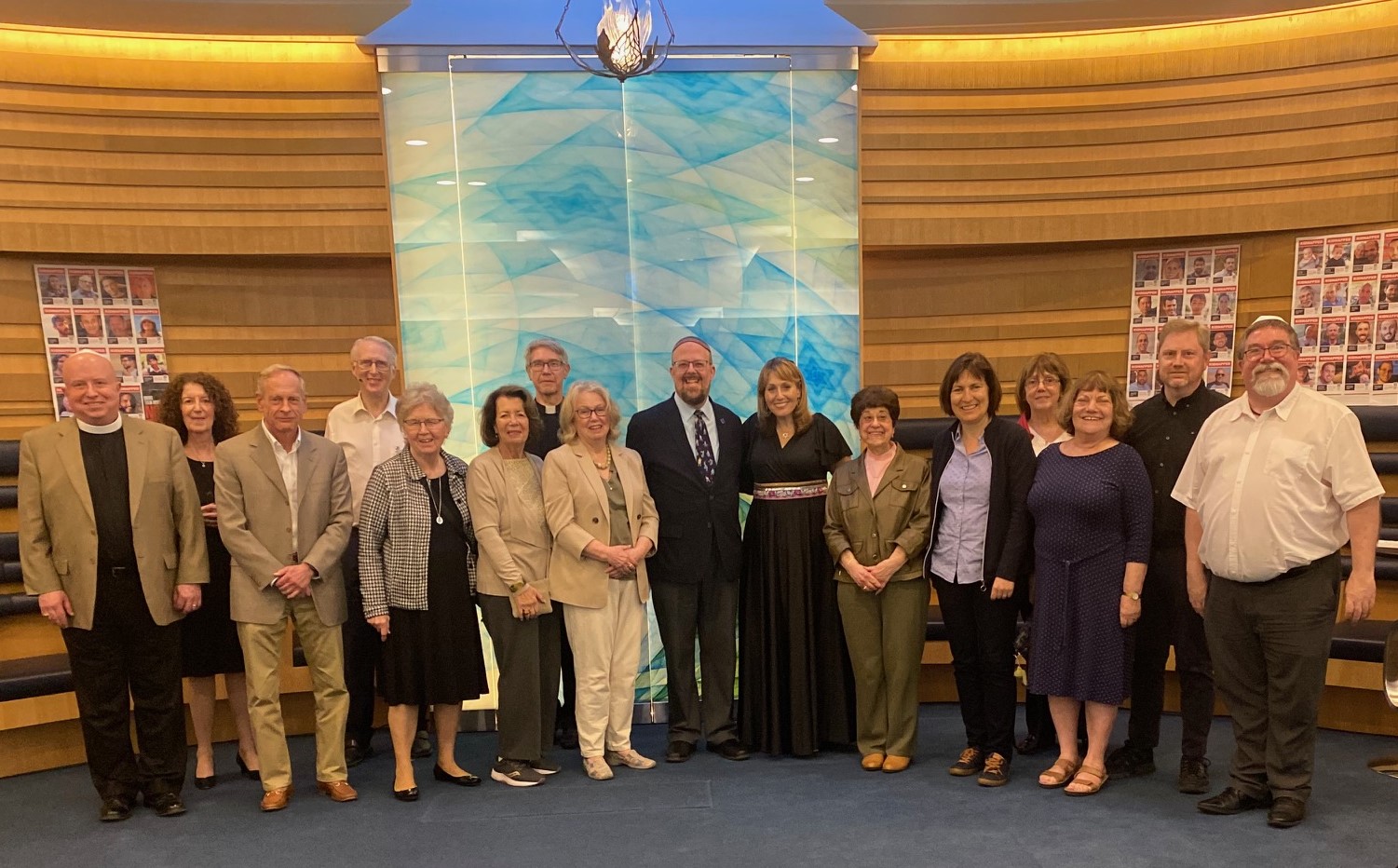
Archdiocesan Statement on Conflict in the Middle East, Local Cases of Hatred and Anti-Semitism
Statement from Cardinal Thomas Collins, Archbishop of Toronto.
Archbishop Francis Leo's Message for Hanukkah.
Canadian Conference of Catholic Bishops-Canadian Rabbinic Caucus Bilateral Dialogue
The Archdiocese of Toronto participates in the national bilateral dialogue sponsored by the Conference of Catholic Bishops and the Canadian Rabbinic Dialogue.
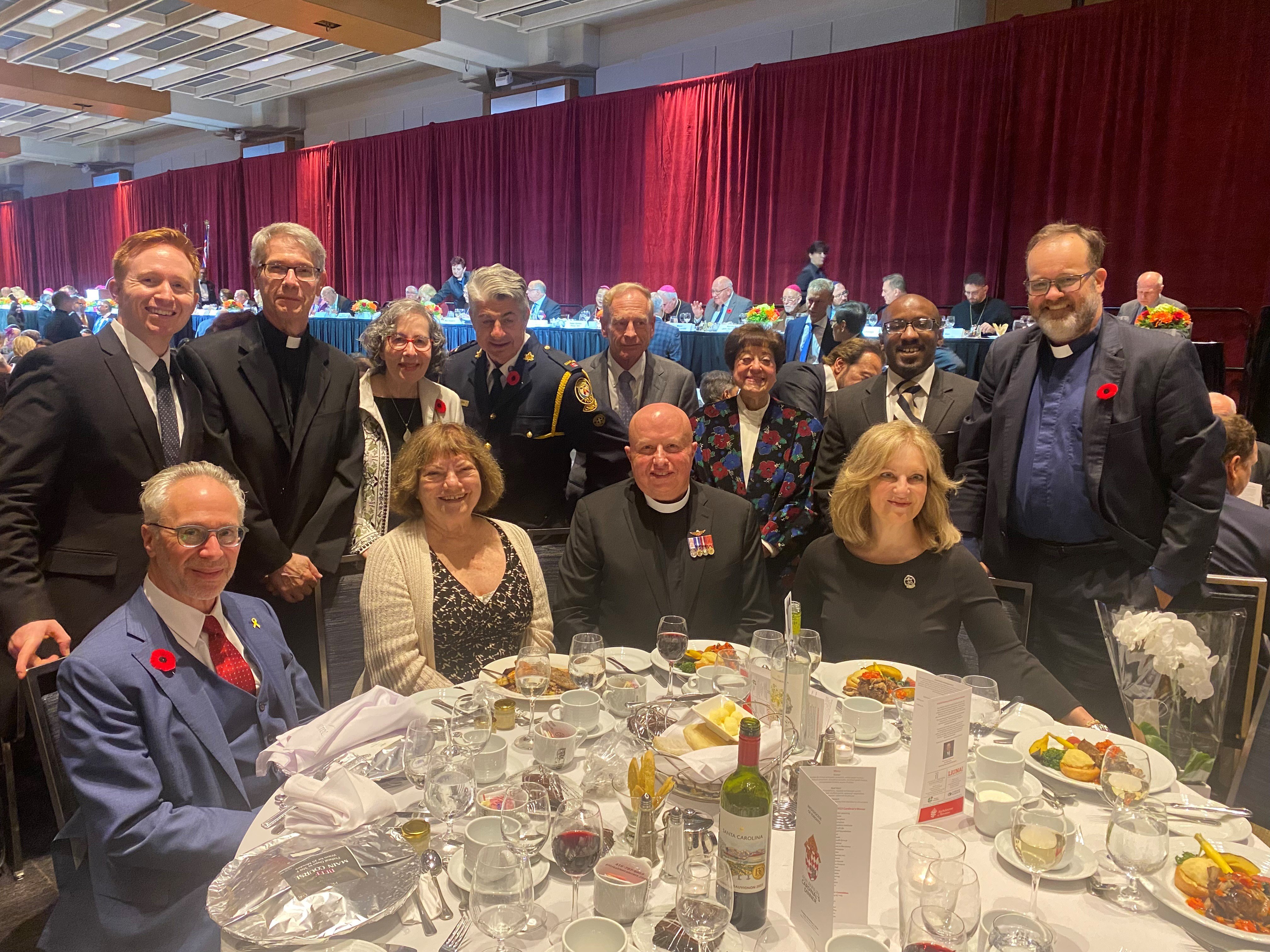
Christian-Jewish Dialogue of Toronto
The Archdiocese of Toronto has membership in the Christian Jewish Dialogue of Toronto.
- Statement from CJDT condemning antisemitic vandalism at North York synagogue - January 19, 2025
- Statement from CJDT Denouncing Attacks Unleashed by Hamas - October 8, 2024
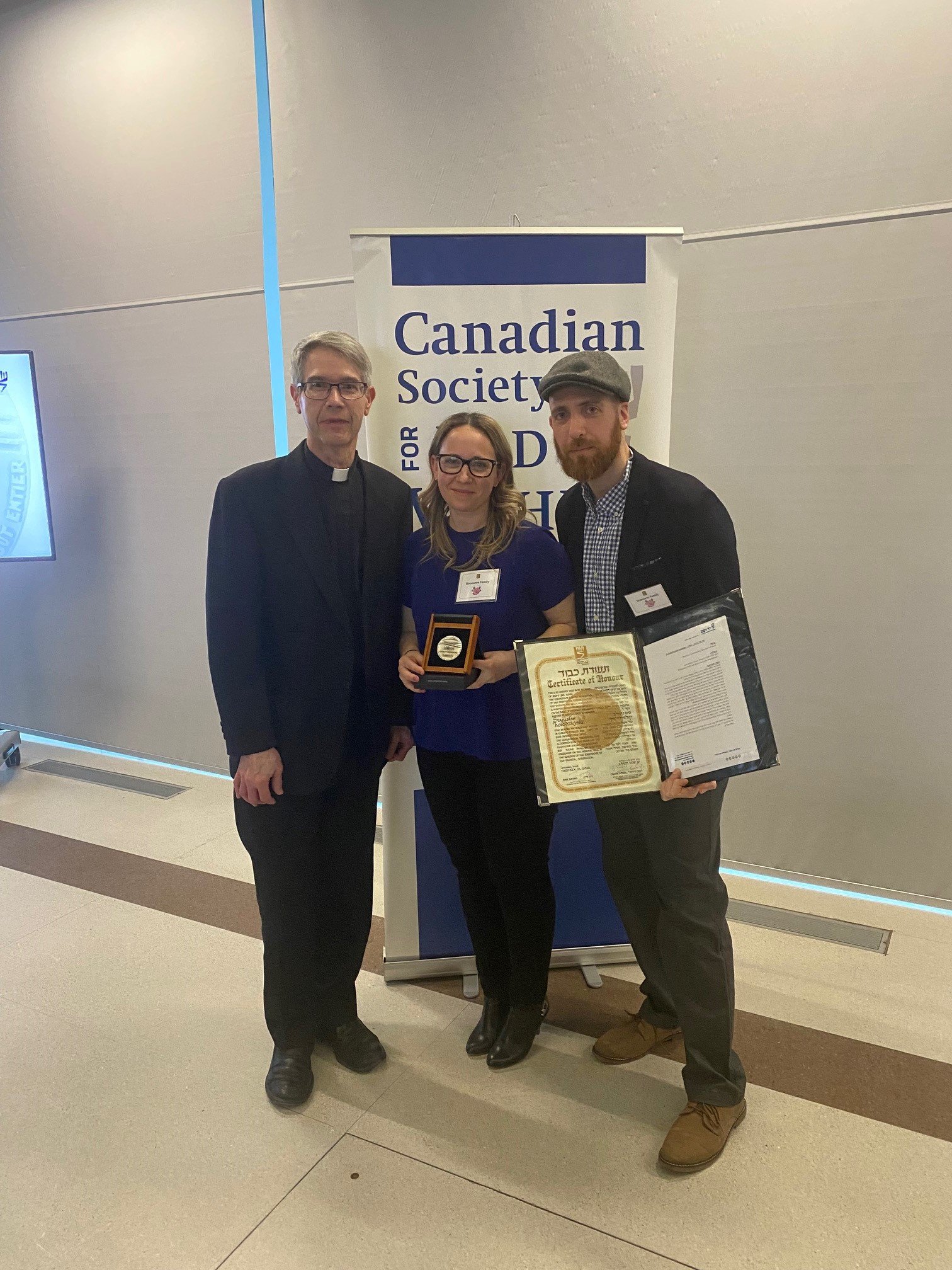
The Righteous Among the Nations
“We must know these good people who helped Jews during the Holocaust. We must learn from them and in gratitude and hope, we must remember them”. Elie Wiesel
The “Righteous Among the Nations” award recognizes the people who risked their lives to rescue Jews during the Holocaust. Those recognized are awarded the Righteous medal and a certificate of honour (to the next-of-kin in the event of a posthumous recognition) and their names are inscribed on the Wall of Honor in the Garden of the Righteous at Yad Vashem. This is the highest honour bestowed by the Jewish people, through the State of Israel, on non-Jews.
The Consulate General of Israel in Toronto along with the Canadian Society for Yad Vashem recognizes the bravery, selflessness and compassion of individuals who risked their own life to save Jews during the Holocaust, many of whom eventually made their home in the GTA.
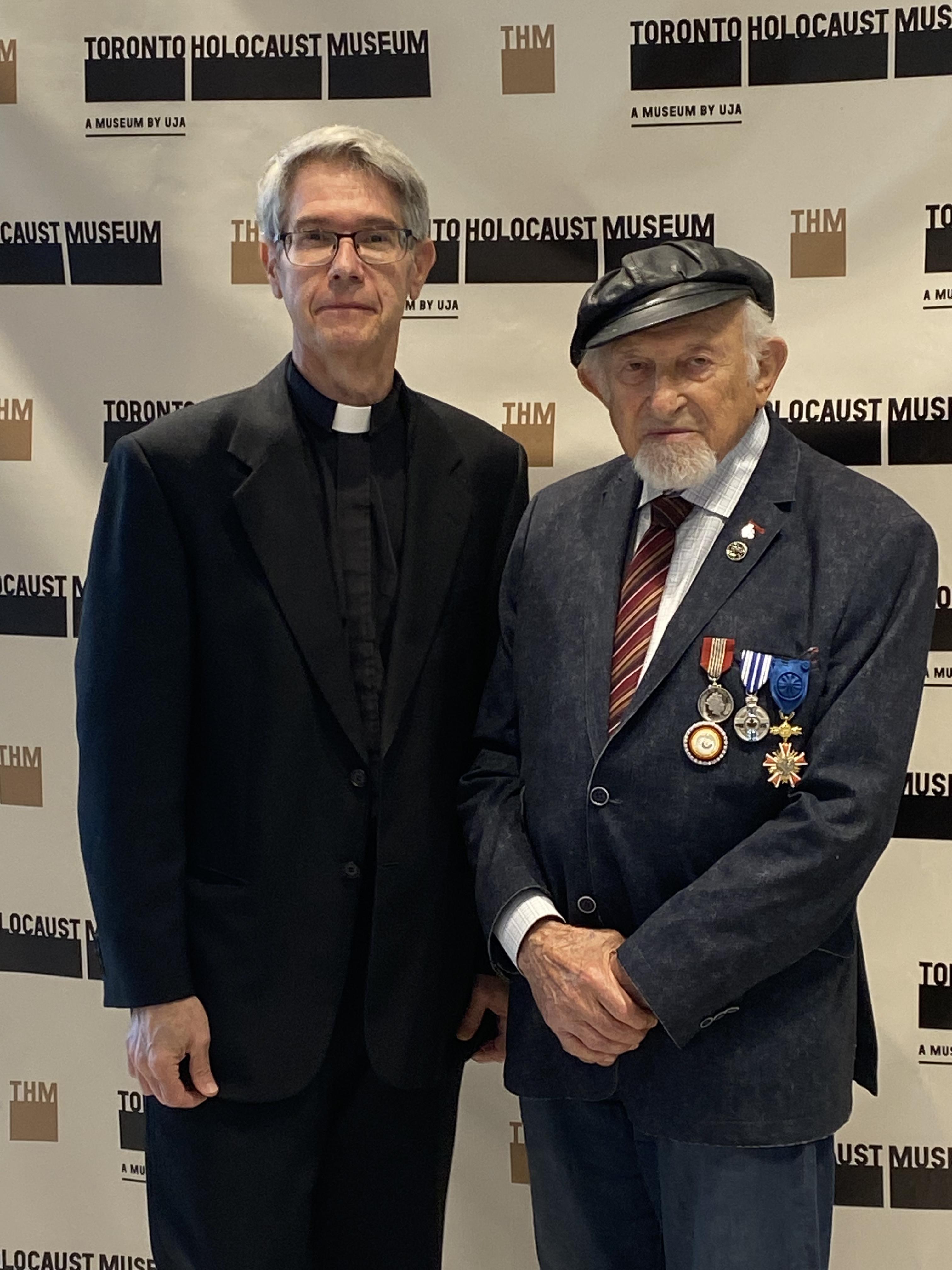
International Holocaust Remembrance Day
Annually on 27 January, events are held to mark the annual observance of the end of the tragedy of the Holocaust that occurred during the Second World War.
The video, "Our Liberation", honours the lives of many who survived the Shoah.
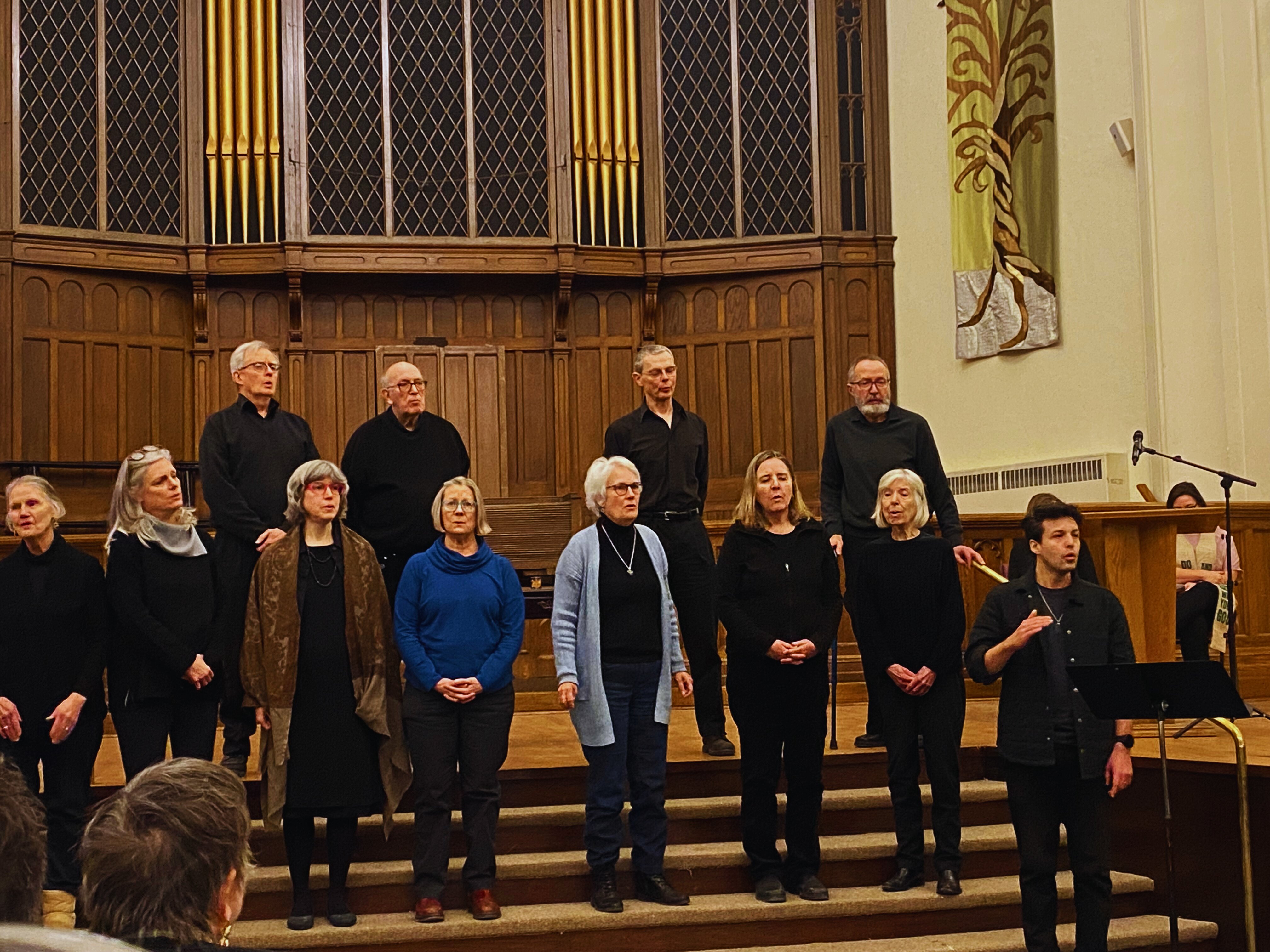
International Kristallnacht Commemoration
Annually around 9-10 November, events are held to mark Kristallnacht or "The Night of Broken Glass," which took place in 1938. In one night, Nazi-orchestrated violence killed 92 Jews, arrested more than 25,000 others and destroyed 200 synagogues and thousands of Jewish homes and businesses. Kristallnacht is recognized as the start of the Holocaust. It is remembered as a way that honours the dead and aims to teach younger generations about the injustice that occurred.
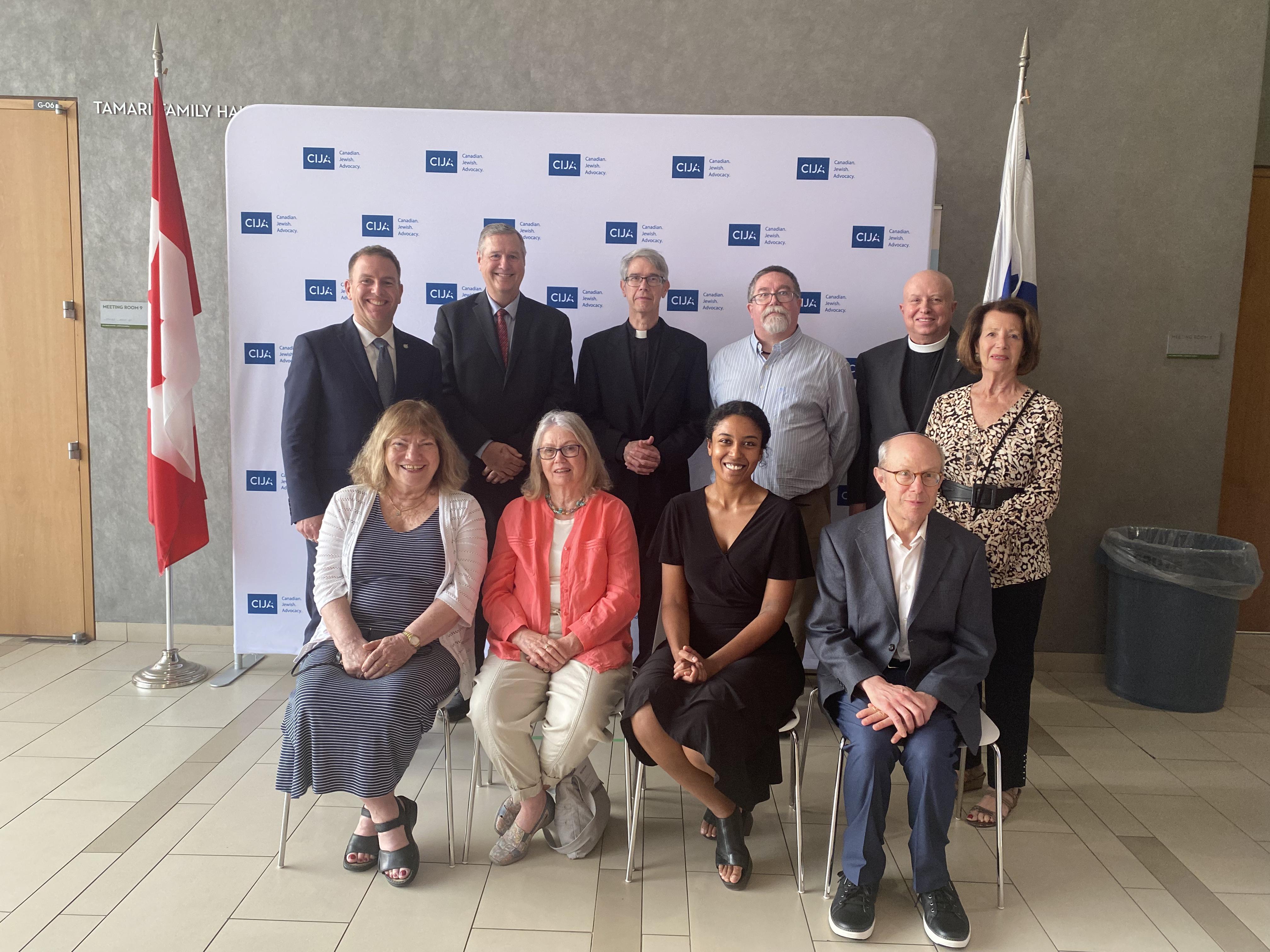
Local Initiatives
Local dialogue initiatives with partners in the Jewish faith community (rabbis, clergy, congregations, etc.) are encouraged.
Some Institutes of Consecrated Life, Societies of Apostolic Life and Ecclesial Movements with explicit charisms promoting relations with the Jewish community are found in the Archdiocese of Toronto (e.g. The Sisters of Our Lady of Sion and the Focolari).
Endnotes
- Nostra aetate, Declaration on the Relations of the Church to Non-Christian Religions, Second Vatican Council, 28 October 1965, §4 [Hereafter NA].
- NA §4.
- The Gifts and the Calling of God are Irrevocable (Rom 11:29): A Reflection on Theological Questions Pertaining to Jewish-Catholic Relationson the Occasion of the 50th Anniversary of "Nostra aetate" (no.4). Commission for Religious Religions with the Jews, Vatican, 10 December 2015, §36.
- Pope Leo XIV, 'Address of the Holy Father to Representative of other Churches and Ecclesial Communities, and other Religions,' 19 May 2025.
- Guidelines for Ecumenical and Interfaith Action in Ontario, Ontario Catholic Conference for Ecumenism, 1985, §29.
- Ecumenical Directory §210.
- Ecumenical Directory §210.
*Source for the image at the top of the webpage: Wikimedia Commons

